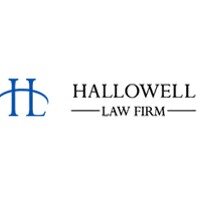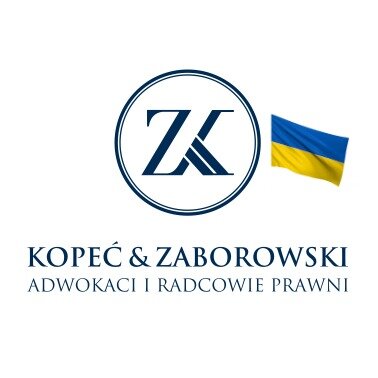Best Nonprofit & Charitable Organizations Lawyers in Warsaw
Share your needs with us, get contacted by law firms.
Free. Takes 2 min.
List of the best lawyers in Warsaw, Poland
About Nonprofit & Charitable Organizations Law in Warsaw, Poland
Nonprofit and charitable organizations in Warsaw, Poland, play a crucial role in addressing social issues, promoting education, providing health services, and enhancing cultural or environmental initiatives. These organizations operate under specific legal frameworks designed to regulate their formation, operation, and governance. The legal landscape for nonprofits in Poland is shaped by several laws, including the Law on Associations, the Act on Foundations, and various tax regulations. Each of these governs different types of organizations and their activities. Understanding this legal environment is essential for the effective and lawful operation of nonprofits.
Why You May Need a Lawyer
Several situations might necessitate seeking legal advice when operating a nonprofit or charitable organization in Warsaw. Common scenarios include:
- Establishing a new charity or nonprofit organization and navigating the initial legal requirements.
- Ensuring compliance with the ongoing regulatory and reporting obligations specific to Poland.
- Managing governance issues such as board member responsibilities and organizational bylaws.
- Handling employment matters, including contracts and disputes with staff or volunteers.
- Dealing with tax-related concerns to take advantage of nonprofit tax benefits.
- Addressing legal challenges related to fundraising activities and accepting donations.
- Resolving conflicts or litigation involving other organizations or stakeholders.
Local Laws Overview
The legal framework for nonprofit organizations in Warsaw, Poland, includes various key elements:
- Law on Associations: Governs the establishment and operation of associations, defining their legal status, rights, and obligations.
- Act on Foundations: Provides the legal foundation for establishing foundations, detailing governance structures and operational scopes.
- Tax Regulations: Tax law influences the financial management of nonprofits, including eligibility for tax exemptions and the requirements for reporting and audits.
- Contract Law: Important for employment agreements and service contracts involving the nonprofit.
- Labor Laws: Guide the employment relationships and rights of workers within the organization.
- Public Benefit Activity and Volunteerism Act: Encourages volunteer involvement in various nonprofit initiatives, providing a framework for volunteer rights and duties.
Frequently Asked Questions
1. What types of nonprofit organizations exist in Poland?
In Poland, common types include associations, foundations, and public benefit organizations. Each has different regulatory requirements and purposes.
2. How can I start a nonprofit organization in Warsaw?
To start a nonprofit, you must draft statutes, register with the local court, and comply with initial documentation and governance requirements.
3. Are nonprofits in Poland eligible for tax exemptions?
Yes, nonprofits may qualify for tax exemptions, but they must meet certain criteria and comply with reporting obligations to maintain this status.
4. Can a nonprofit engage in commercial activities?
Yes, but these activities must align with the organization's mission, and profits should be used to support its mission-driven initiatives.
5. What are the roles of board members in an association or foundation?
Board members are responsible for governance, strategic direction, compliance with legal obligations, and financial oversight of the organization.
6. How is volunteer work regulated in Polish nonprofits?
Volunteers in Poland are governed by specific regulations ensuring their rights, safety, and the nature of their work within the organization.
7. Are there reporting requirements for Polish nonprofits?
Yes, nonprofits must submit annual financial statements, reports on activities to relevant government bodies, and maintain transparency in operations.
8. What are the legal considerations for foreign donations?
Foreign donations are generally allowed, but nonprofits must comply with specific regulations and reporting obligations for international funding.
9. How can an organization lose its public benefit status?
An organization may lose its status if it fails to comply with legal requirements, misuses funds, or engages in activities contrary to its mission.
10. What legal recourse exists for nonprofits in disputes?
Nonprofits can resolve disputes through negotiation, mediation, or pursuing legal action in Polish courts depending on the nature of the conflict.
Additional Resources
For help with legal advice regarding nonprofits in Warsaw, the following resources may be useful:
- Ministry of Justice, which offers guidance and oversight for nonprofit registration and compliance.
- Local legal aid organizations that provide support and consultation services for nonprofit legal matters.
- National Freedom and Civic Society Development Center, which supports civic organizations and provides useful information.
Next Steps
If you require legal assistance regarding your nonprofit organization in Warsaw, consider the following steps:
- Consult with a lawyer specializing in nonprofit law to understand your specific legal questions and concerns.
- Visit a local legal aid organization or community service to gain initial advice and resources.
- Examine governmental and regulatory body websites for guidance and necessary forms related to nonprofit operations.
- Prepare all relevant documents and information before consultations to facilitate effective legal support.
Lawzana helps you find the best lawyers and law firms in Warsaw through a curated and pre-screened list of qualified legal professionals. Our platform offers rankings and detailed profiles of attorneys and law firms, allowing you to compare based on practice areas, including Nonprofit & Charitable Organizations, experience, and client feedback.
Each profile includes a description of the firm's areas of practice, client reviews, team members and partners, year of establishment, spoken languages, office locations, contact information, social media presence, and any published articles or resources. Most firms on our platform speak English and are experienced in both local and international legal matters.
Get a quote from top-rated law firms in Warsaw, Poland — quickly, securely, and without unnecessary hassle.
Disclaimer:
The information provided on this page is for general informational purposes only and does not constitute legal advice. While we strive to ensure the accuracy and relevance of the content, legal information may change over time, and interpretations of the law can vary. You should always consult with a qualified legal professional for advice specific to your situation.
We disclaim all liability for actions taken or not taken based on the content of this page. If you believe any information is incorrect or outdated, please contact us, and we will review and update it where appropriate.

















